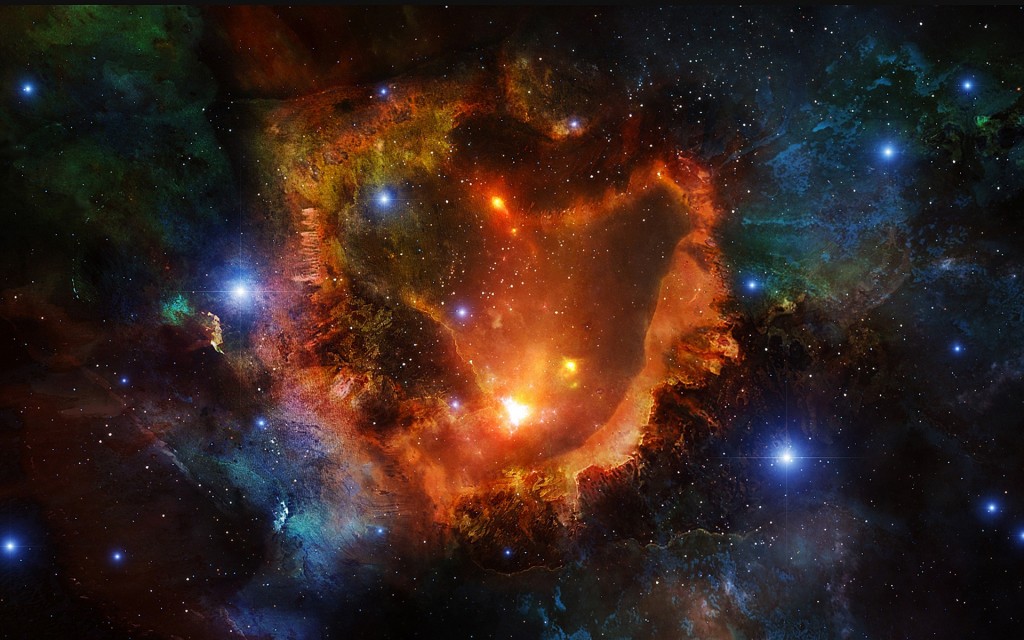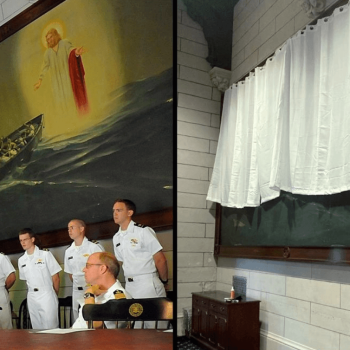
(Wikimedia Commons public domain image)
Something that I hadn’t known about a well-worn anecdote — an especially popular story among atheists — that I’ve known for many years:
“Both Richard Dawkins and Christopher Hitchens quote an exchange between the emperor Napoleon and the brilliant French mathematician Pierre Simon de Laplace. Laplace had taken Newton’s work and extended it in a substantial way to the entire solar system, presenting his results in Celestial Mechanics, first published in 1799. Newtonian physics was thus shown to govern the complicated interactions among the planets. Some time later, Laplace made a present of his book to Napoleon. The emperor read it and then said to Laplace: ‘You have written an entire book about the world without mentioning its maker.’ Laplace’s response was: ‘Sire, I had no need of that hypothesis.’
“Unfortunately, both Dawkins and Hitchens leave out the final punch line of this story: Napoleon later repeated his exchange with Laplace to another great French mathematician, Joseph-Louis Lagrange, who had also done important work in astronomy and mathematics. Lagrange’s answer was ‘Ah! mais c’est une belle hypothèse; ça explique beaucoup de choses’ (‘Ah, but it is such a beautiful hypothesis; it explains many things’).”
Amir D. Aczel, Why Science Does Not Disprove God (New York: William Morrow/HarperCollins, 2014), 84-85.
***
Meanwhile, in other science-related news:
Here’s a disturbing cautionary tale:
“Dr Con Man: the rise and fall of a celebrity scientist who fooled almost everyone”
Here’s some encouraging news about possible water on far distant (but potentially habitable) exoplanets:
“Hubble Spots First Indications of Water on Trappist-1s Planets”
On the other hand, there’s this discouraging little essay:
“Why We Should Really Stop Trying to Contact Aliens”
So maybe, with that in mind, this is actually quite good news for us:
“Tabby’s star is probably just dusty, and still not an alien megastructure”
***
“The prolific eighteenth-century Swiss mathematician Leonhard Euler, one of the greatest mathematicians of all time, was also a deeply religious man. He was a member of the Royal Academy of Sciences in Saint Petersburg, Russia, and one day, the famous French atheist Denis Diderot came to visit the academy, apparently on a mission to convert its members to atheism.
“Euler was told about the visitor, and believed that Diderot knew nothing about mathematics. So he surprised him in a public debate by demanding, ‘Sir, a plus b to the nth power divided by n equals x; therefore, God exists! Respond!” Diderot, understanding nothing, could not open his mouth. Wild laughter erupted in the room; the humiliated Diderot withdrew and, the next day, packed his bags and returned to France.
“This story may well be apocryphal, but what the New Atheists are doing today is tantamount to the same thing. Without a shred of evidence on their side, they declare: ‘Science proves there is no God! Respond!” — and a public that may not be steeped in all the nuances and technicalities of science is left flummoxed, and hence vulnerable to the New Atheists’ overconfident pronouncements.”
Aczel, Why Science Does Not Disprove God, 242-243.















